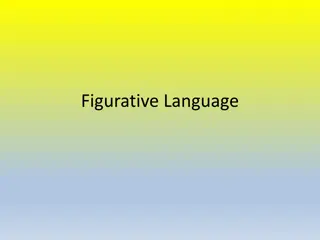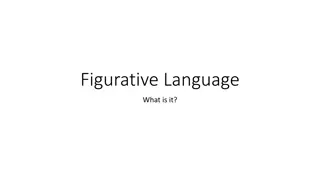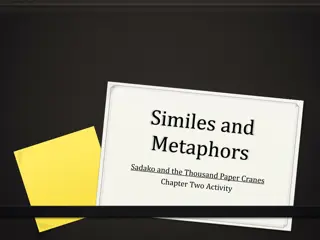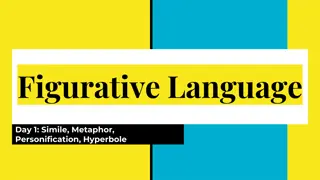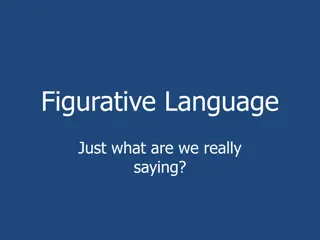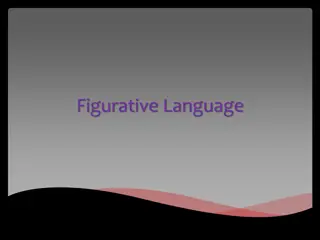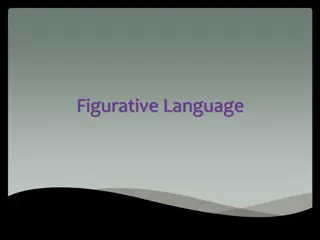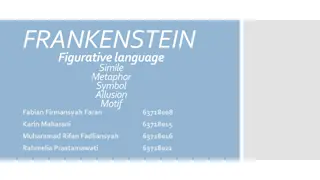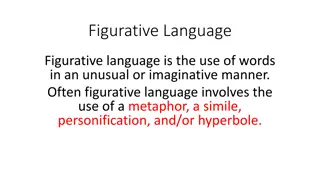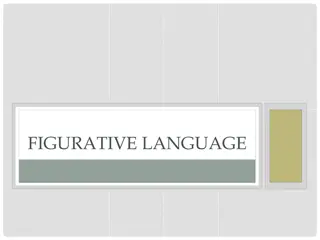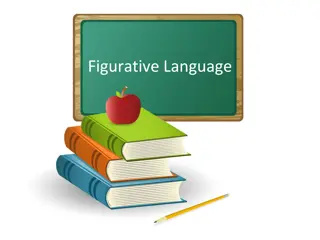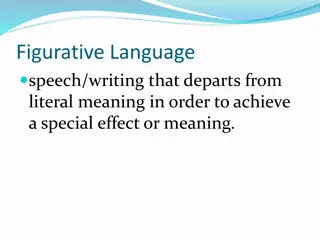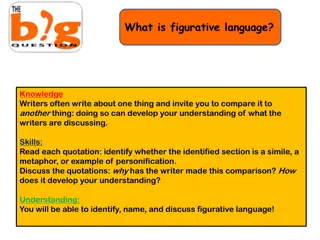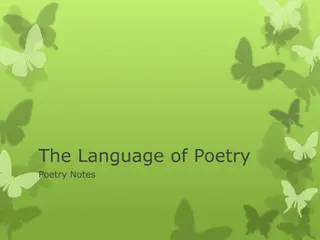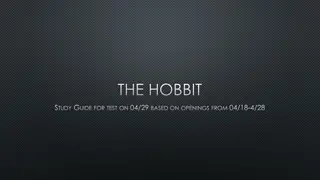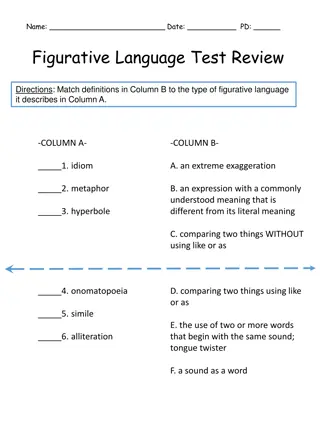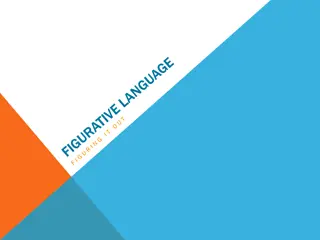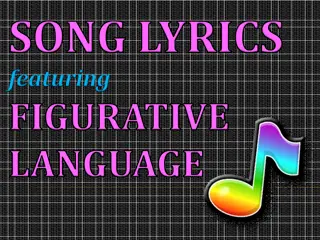Exploring Figurative Language in Literature
Figurative language adds depth and imagery to writing by using words or expressions in a non-literal way. Common examples include simile, metaphor, personification, onomatopoeia, hyperbole, and symbolism. Similes compare two unlike things using "like" or "as," while metaphors directly equate them. Personification attributes human qualities to inanimate objects, onomatopoeia imitates sounds, hyperbole exaggerates, and symbolism assigns deeper meanings to objects or colors. These devices enhance the vividness of literature, particularly in poetry.
Download Presentation

Please find below an Image/Link to download the presentation.
The content on the website is provided AS IS for your information and personal use only. It may not be sold, licensed, or shared on other websites without obtaining consent from the author. Download presentation by click this link. If you encounter any issues during the download, it is possible that the publisher has removed the file from their server.
E N D
Presentation Transcript
What is figurative language? Figurative language is language that uses words or expressions with a meaning that is different from the literal interpretation. Examples include: Simile Metaphor Onomatopoeia Hyperbole Personification Symbolism Figurative language makes literature more vivid. It is especially common in poetry.
Simile A comparison between two unlike things using the words like or as. Granny was as blind as a bat. The dog was as fast as lightning. He is as tall as his brother. He slept like a log.
Metaphor A direct comparison of two unlike things; metaphors DO NOT use like or as for comparison. When two unlikes you match direct A METAPHOR makes them connect. The streams are snakes, toupees are rugs, And human arms give big bear hugs. He hogged the road. She toyed with the idea. Dad was a rock through all their trouble. Dad was a man through all their trouble.
Personification Giving human characteristics to non- human things The sun was eaten by the storm clouds. Mickey Mouse The flower grew.
Onomatopoeia Occurs when the sound of the word gives the meaning of the word. Buzz, whisper, meow, sizzle, hiss, ping
Hyperbole Hyperbole is an extreme exaggeration. Her boom box was loud enough to wake the dead. I have a million errands to run today. I caught a trophy fish! (Actually it was barely big enough to keep.)
Symbolism Red rose or the color red Occurs when a noun which has meaning in itself is used to represent something entirely different. Love / romance The color black Evil / death Lion Bravery / power Book Education / knowledge Dove Peace


